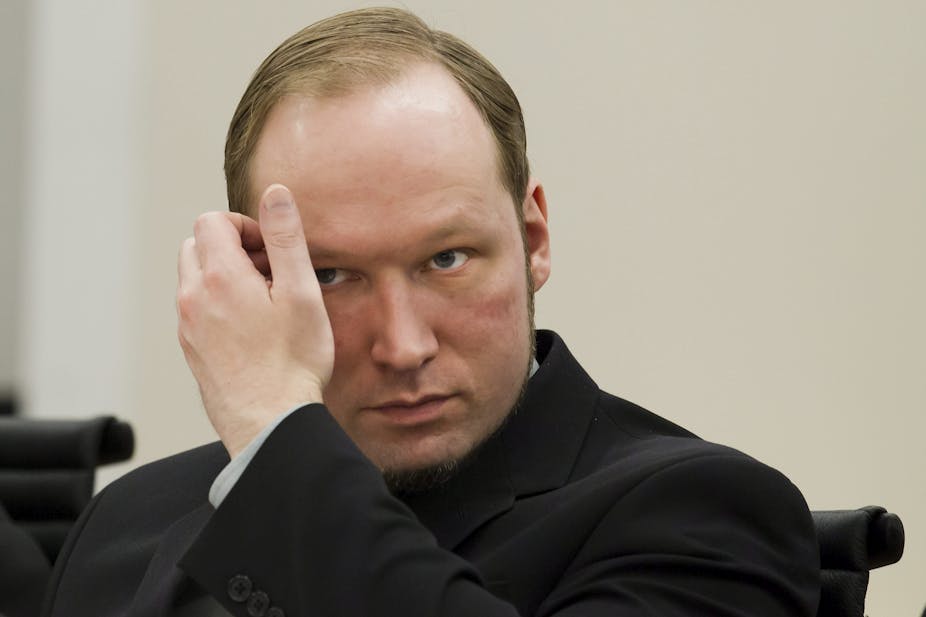Does Anders Breivik deserve friends?
The Norwegian justice system thinks so.
It is often said that the humanity of a society can be judged by the way it treats its most disadvantaged citizens, even those who commit crime and are removed from that society.
The standards of treatment in a prison may, to some extent, reflect just how far the humane values of that society are extended. In some cultures prisoners are treated with little respect and with little dignity, whereas the standards of treatment in Norwegian prisons are arguably the best in the world, to the extent of allowing prisoners to have their own rooms keys and be able to access saunas and outdoor activities.
In Norway’s Ila prison the treatment of confessed mass murderer Anders Breivik raises further issues. It is proposed that Breivik is “too dangerous” to mingle with ordinary prisoners, and rather than have him deprived of company, the prison proposes to hire trained “friends” to interact with him. The prison indicated that it was not willing to inflict years of isolation on Breivik, given that he was likely to remain in that environment for the next 21 years, should the courts determine he is not to be detained under their mental health criteria.
The first United Nations Congress on the Prevention of Crime and the Treatment of Offenders was held in Geneva in 1955, and set out guidelines for the treatment of prisoners and the management of institutions. These guidelines recommended that corporal punishment, sensory deprivation and cruel or degrading punishments be prohibited and punishment by close confinement should never be inflicted.
It is with these guidelines in mind that the famously progressive Norwegian prison system will have made its decision on Breivik.
The Australian situation
In Australia, the standard of treatment in prisons varies greatly. If one examines how one prison treats its worst prisoner, some insight may be gleaned. Michael Barry Fyfe, “the Birdman of Yatala”, has been held in solitary confinement in South Australia’s main prison since 1996.
Fyfe had a horrendous childhood. He was raised by his father in Tasmania and was forced to have regular sexual intercourse with his own sister as his perverted father watched on. This behaviour continued over several years until Fyfe was aged 14 years. As a victim of such appalling psychological degradation, Fyfe became an angry man, who developed a hatred towards authority figures who abused their roles, and those who perpetrated sexual offences.

In prison, Fyfe’s anger manifested itself in 1996 when he attacked and killed a convicted rapist and former police officer, Joe Tilley, in the prison kitchen.
In sentencing Fyfe, the Judge described Fyfe as one of the most violent men he had encountered and that his “prospects for rehabilitation were nil”. Subsequently Fyfe was placed in solitary confinement in Yatala Labour Prison’s notorious “G Division”. Fyfe’s “dangerousness” was assessed by prison psychologists utilizing a static risk assessment tool, which took into account only historical data, and determined that Fyfe was a “very high violent risk offender”.
Alone for life?
Several Supreme Court Judicial Appeals took place in 1998, 2000, 2004 and 2007 that argued for Fyfe to be transferred to the mainstream prison. All were unsuccessful. On each appeal the “dangerousness” criteria was weighted more strongly by the Court than his “human rights”.
Because the primary “risk assessment” measure is static, it will always show Fyfe to be “high risk” and as such, it is unlikely he will ever be released from solitary confinement. This is an example of how Australian society has determined its weighting of “dangerousness risk” versus “human rights”.
Despite mitigating circumstances, upbringing and motives, society asks for remorse from its offenders - some acknowledgement of how their actions robbed others of their human rights.
Will society itself be accountable for its lack of remorse in how it responds to its most disadvantaged and damaged citizens or do “2 wrongs make a ‘right’? ”
By denying the likes Michael Fyfe the human contact Anders Breivik will be permitted, we damage ourselves as much as we hurt those we claim to punish.

